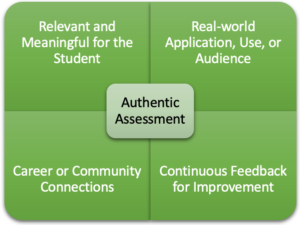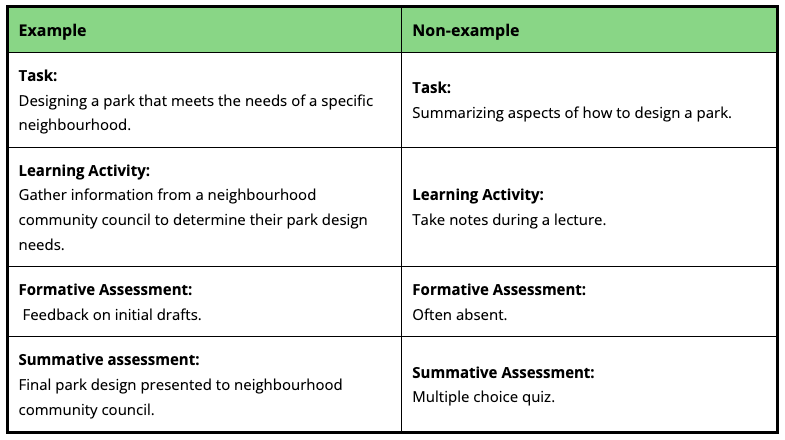Defining Authentic Assessment
Authentic assessment emphasizes real-world application of skills and knowledge. Learn how it enhances student engagement and aligns with meaningful learning outcomes.
By Gwenna Moss Centre for Teaching and Learning
The term “authentic assessment” is often misleading as it is not just about assessing a student submission ‘authentically’; rather, it focuses on the context and relevance of learning beyond academia. The following definition considers the interconnectedness of learning tasks, activities, and feedback in designing authentic assessments.
Authentic assessments are evaluations of student learning that use real-world tasks or performance-based assessments in authentic contexts. Authentic assessments rely on continuous feedback for improvement in their design. The goal of authentic assessment is to assess student learning in a way that is meaningful and relevant to the student and is often connected to the student’s future academic or career goals. Examples of authentic assessment include portfolios, performance tasks, and problem-based learning activities.
For clarity, the table below juxtaposes an example and non-example of authentic assessment.

Additional Resource:
Sokhanvar, Z., Salehi, K., & Sokhanvar, F. (2021). Advantages of authentic assessment for improving the learning experience and employability skills of higher education students: A systematic literature review. Studies In Educational Evaluation, 70, 101030. https://doi.org/10.1016/j.stueduc.2021.101030

